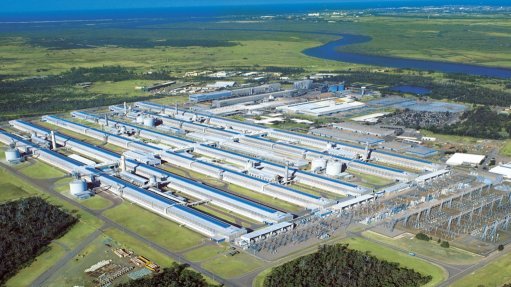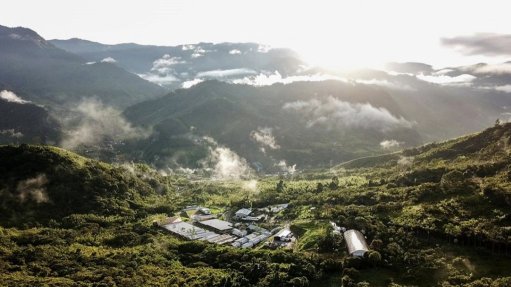Independent reports highlight decline in water systems, wastewater treatment plants
Nongovernmental organisation AfriForum’s latest independent Blue Drop and Green Drop reports have highlighted a regression in South Africa’s water systems, particularly wastewater treatment works.
The organisation’s yearly Blue Drop and Green Drop reports, which assess municipal drinking water and processed sewage water respectively, are based on sample testing conducted in August across its countrywide network of 160 branches.
“AfriForum’s 2024 Blue and Green Drop results paint a dark and worrying picture of the management of South Africa’s water supply and sewage treatment systems. With little to no improvement in the results of the past five years, the expectation is that a lack of access to clean drinking water and the pollution of natural water sources will increase even more in the future, unless urgent and drastic action is taken,” says AfriForum environmental affairs adviser Marais de Vaal.
AfriForum tested the municipal drinking water quality of 210 towns and cities across South Africa – 17 locations more than in 2023.
The Blue Drop testing indicates that 87% – 182 out of 210 tests – of municipal drinking water is safe for human consumption and meets the minimum requirements. However, this represents a nine percentage point decrease from the 96% – 185 out of 193 tests – that was indicated as safe in 2023.
“Where only eight cases in 2023 indicated unsafe drinking water, and these results were limited to Mpumalanga, the Free State and KwaZulu-Natal, in 2024 unsafe municipal drinking water occurs in 28 towns, spread over each of the nine provinces,” he says.
In 2020, 3% of the water (five out of 178 tests) was unsafe for human consumption. This declined to 2% in 2021 (four out of 188 tests), before increasing to 4% in 2022 (six out of 170 tests) and 2023 (eight out of 193 tests) and rising further to 13% in 2024 (28 out of 210 tests).
“This year’s Green Drop results, which give an indication of whether sewage is processed to a sufficient standard to be released safely into the environment, are equally shocking.”
The 2024 Green Drop results indicate that only 13% – or 20 out of 150 – of the wastewater treatment works tested meet the minimum standards for discharge into a water resource.
The outflow from an overwhelming majority of 87% – or 130 out of 150 – of wastewater treatment works do not meet the prescribed standards.
This represents a six percentage point increase compared with 2023, when 81% of tests at wastewater treatment plants indicated pollution.
“An alarming observation is that the results of 2023’s Green Drop tests indicated that no processed sewage in the Free State or the Eastern Cape met the prescribed standards. In 2024, a further three provinces, namely Limpopo, Mpumalanga and KwaZulu-Natal, were added to this unenviable group and there are now five provinces where none of the Green Drop test results met the standards.”
In 2020, 78% of sewage treatment plants across the country (90 out of 115) failed to comply with the set standards, with the percentage increasing to 86% (120 out of 140) in 2021 and 93% (88 out of 95) in 2022, before decreasing to 81% (114 out of 140) in 2023.
“The complete mismanagement of the entire water supply chain represented by these shocking figures predicts that South Africans can not only expect higher costs for the treatment of drinking water in the future, but also the existence of an increasing risk that consumers will be exposed to unsafe drinking water.”
AfriForum environmental affairs manager Lambert de Klerk explains that water supply and sewage treatment systems do not function properly because the vast majority of municipalities, which are mainly responsible for water and sanitation services, continuously underperform.
AfriForum believes the only effective solution for the water crisis, which stems from poor management, lies in cooperation and alignment between all levels of government, different government departments, the private sector and community organisations for the sustainable management of South Africa’s water resources.
Article Enquiry
Email Article
Save Article
Feedback
To advertise email advertising@creamermedia.co.za or click here
Press Office
Announcements
What's On
Subscribe to improve your user experience...
Option 1 (equivalent of R125 a month):
Receive a weekly copy of Creamer Media's Engineering News & Mining Weekly magazine
(print copy for those in South Africa and e-magazine for those outside of South Africa)
Receive daily email newsletters
Access to full search results
Access archive of magazine back copies
Access to Projects in Progress
Access to ONE Research Report of your choice in PDF format
Option 2 (equivalent of R375 a month):
All benefits from Option 1
PLUS
Access to Creamer Media's Research Channel Africa for ALL Research Reports, in PDF format, on various industrial and mining sectors
including Electricity; Water; Energy Transition; Hydrogen; Roads, Rail and Ports; Coal; Gold; Platinum; Battery Metals; etc.
Already a subscriber?
Forgotten your password?
Receive weekly copy of Creamer Media's Engineering News & Mining Weekly magazine (print copy for those in South Africa and e-magazine for those outside of South Africa)
➕
Recieve daily email newsletters
➕
Access to full search results
➕
Access archive of magazine back copies
➕
Access to Projects in Progress
➕
Access to ONE Research Report of your choice in PDF format
RESEARCH CHANNEL AFRICA
R4500 (equivalent of R375 a month)
SUBSCRIBEAll benefits from Option 1
➕
Access to Creamer Media's Research Channel Africa for ALL Research Reports on various industrial and mining sectors, in PDF format, including on:
Electricity
➕
Water
➕
Energy Transition
➕
Hydrogen
➕
Roads, Rail and Ports
➕
Coal
➕
Gold
➕
Platinum
➕
Battery Metals
➕
etc.
Receive all benefits from Option 1 or Option 2 delivered to numerous people at your company
➕
Multiple User names and Passwords for simultaneous log-ins
➕
Intranet integration access to all in your organisation


















